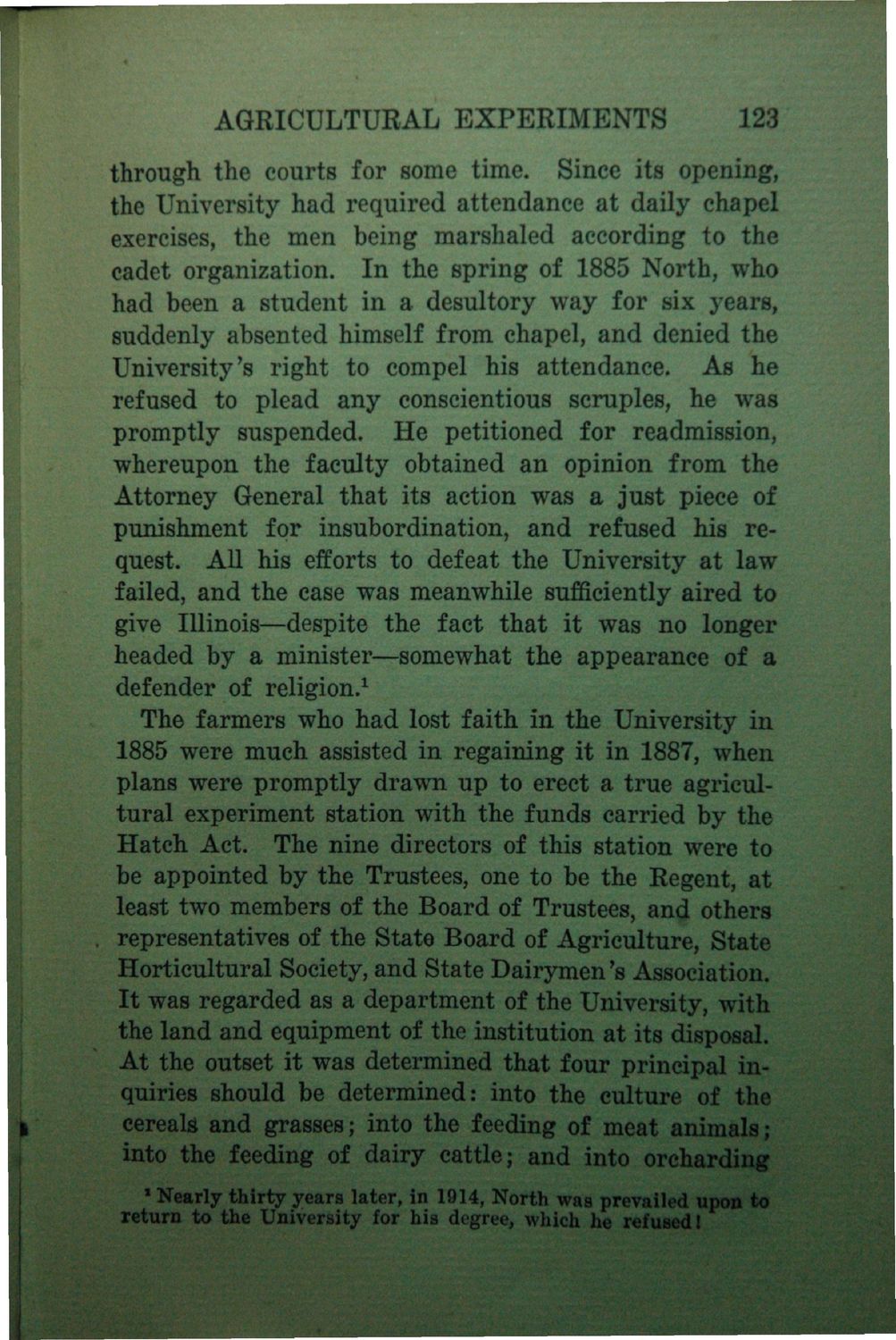| |
| |
Caption: Book - History of the University (Nevins)
This is a reduced-resolution page image for fast online browsing.

EXTRACTED TEXT FROM PAGE:
AGRICULTURAL EXPERIMENTS 123 through the courts for some time. Since its opening, the University had required attendance at daily chapel exercises, the men being marshaled according to the cadet organization. In the spring of 1885 North, who had been a student in a desultory way for six years, suddenly absented himself from chapel, and denied the University's right to compel his attendance. As he refused to plead any conscientious scruples, he was promptly suspended. He petitioned for readmission, whereupon the faculty obtained an opinion from the Attorney General that its action was a just piece of punishment for insubordination, and refused his request. All his efforts to defeat the University at law failed, and the case was meanwhile sufficiently aired to give Illinois—despite the fact that it was no longer headed by a minister—somewhat the appearance of a defender of religion.1 The farmers who had lost faith in the University in 1885 were much assisted in regaining it in 1887, when plans were promptly drawn up to erect a true agricultural experiment station with the funds carried by the Hatch Act. The nine directors of this station were to be appointed by the Trustees, one to be the Regent, at least two members of the Board of Trustees, and others . representatives of the State Board of Agriculture, State Horticultural Society, and State Dairymen's Association. It was regarded as a department of the University, with the land and equipment of the institution at its disposal. At the outset it was determined that four principal inquiries should be determined: into the culture of the cereals and grasses; into the feeding of meat animals; into the feeding of dairy cattle; and into orcharding I Nearly thirty years later, in 1914, North waB prevailed upon to return to the University for his degree, which he refused! if
| |